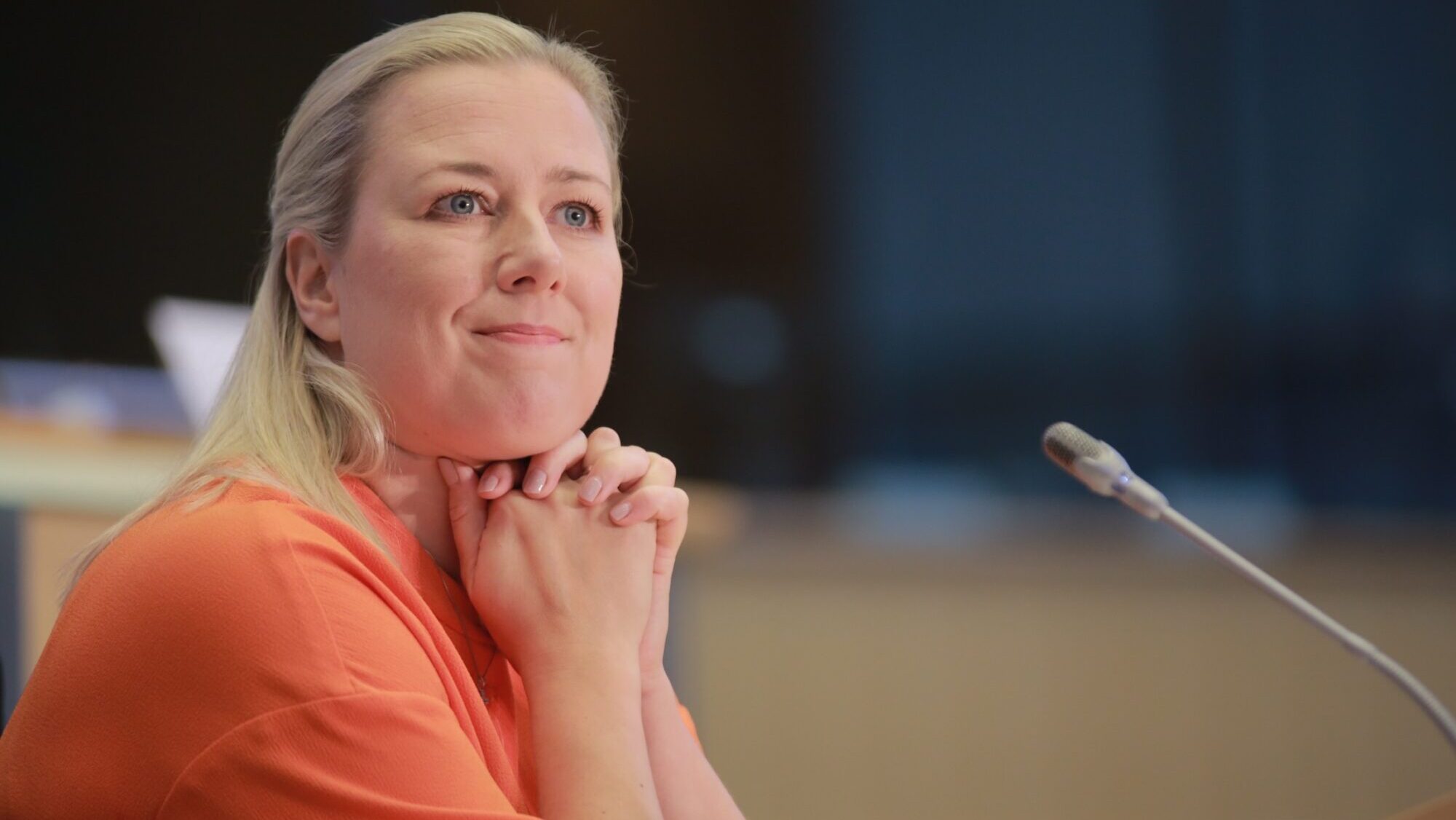
Commissioner Jutta Urpilainen
Photo: Aurore Martignoni ©European Union – Source: EC – Audiovisual Service
While the issues may be smaller, the EU Commission is no more transparent now than it was when purchasing billions of doses of COVID vaccine at the height of the pandemic.
In instances reminiscent of the ‘Delegate’ scandal in which the office of EU Commission President Ursula von der Leyen refused to give journalists the texts of WhatsApp exchanges between her and the CEO of the pharmaceutical company Pfizer, journalists and NGOs have recently been denied access to emails of commissioners.
The Commission is offering the same excuse as in the ‘Delegate’ scandal—that the missives were too minor to be of public interest—leading Ombudsman Emily O’Reilly to again conclude that the Commission is guilty of a lack of transparency and poor record-keeping.
In the latest case, environmental journalist Arthur Neslen asked the Commission to provide three specific emails to Finnish Commissioner Jutta Urpilainen, expecting them to show that her office intervened on behalf of the Nordic loggers. According to Neslen’s reporting, Urpilainen had been dogged by the logging industry on environmental issues in 2020 and 2021, even though logging was far outside her portfolio. She is the commissioner for international partnerships and deals with the EU’s international aid and development policies.
Just as had happened to journalists in the ‘Delegate’ case, Neslen was denied access to the communications and so turned to the ombudsman’s office for help. The Commission responded to O’Reilly’s office that it was under no obligation to even look for the emails Neslen had requested or consider disclosing them to the public as they did not constitute documents under EU regulations about public access and transparency.
This is the same excuse the Commission gave for apparently deleting some exchanges between the head of the EU Commission and the chief executive of Pfizer even while negotiations for vaccines were underway.
As in the ‘Delegate’ case, the ombudsman disagreed with the Commission.
“The Ombudsman inspected the emails and considered that they pertain to ‘policies, activities, and decisions’ for which the Commission is responsible. They were also clearly held by the Commission, and so are ‘documents’ within the meaning of Regulation 1049/2001,” O’Reilly concluded.
She urged the Commission to stop making excuses and simply give the journalist the emails he had requested.
“[T]he Commission risks being seen as particularly citizen unfriendly when it holds documents but refuses to examine them with a view to disclosure, simply on the ground that it has decided not to register the document,” O’Reilly further wrote.
The incident follows on the heels of another refused document request, this one involving von der Leyen herself and related to the trade agreement between the Latin American trading bloc Mercosur and the EU, which is still under negotiation.
Brussels had sent an addendum of the agreement to the Mercosur countries—Brazil, Argentina, Uruguay, and Paraguay—in March in response to public clamor over the negative impacts of the trade agreement on European farmers and concerns about deforestation in the Amazon region.
The organization Friends of the Earth sought a copy of the addendum from the Commission in July, Politico reports, but the body denied the request. The NGO then missed the deadline to seek a review of that decision and turned to the ombudsman for assistance. Though the NGO had fallen outside EU protocol, O’Reilly found the case compelling enough to write to the commission. But again, the commission refused to grant access to the communiqué, preferring to keep the new protocol secret.
“It is difficult to reconcile the refusal to disclose this document with the Commission’s commitment to a more open policy-making process in trade and investment,” O’Reilly wrote in her letter.
